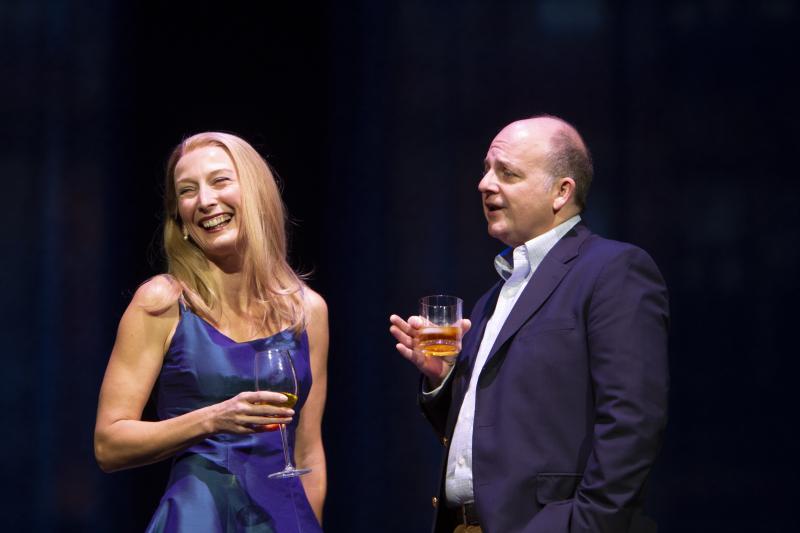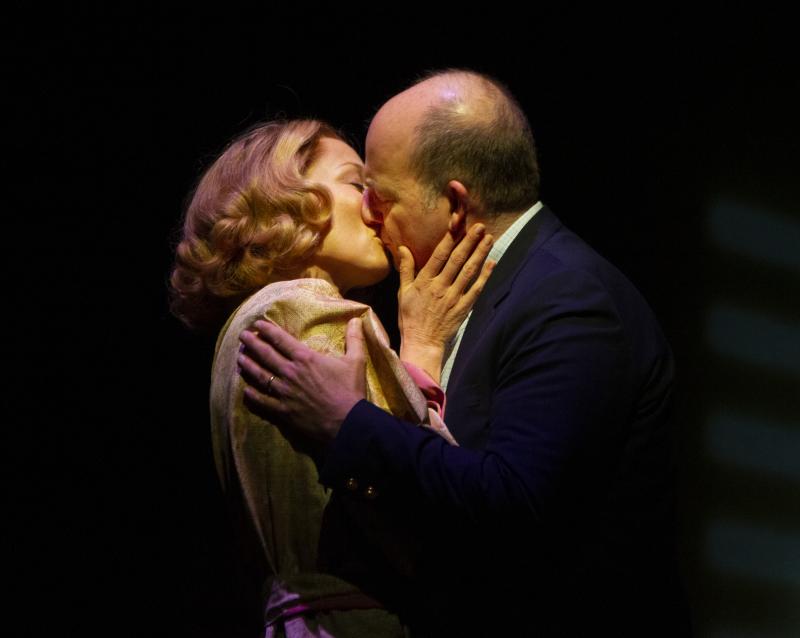Review: Calvin Trillin's ABOUT ALICE Is A Warm, Witty and Wondrous Valentine
To those who knew her, Alice Trillin was highly regarded as an educator, author and film producer. But to millions more who never met her, she was the women that her husband, humorist Calvin Trillin, so obviously adored and admired with all of his heart.

(Photo: Henry Grossman)
After thirty-six years of marriage, and frequent mentions in her husband's writings, Alice Trillin's death, from heart failure stemming from damage caused by the radiation treatments that left her cancer-free twenty-five years earlier, went largely unnoticed by the news media, as it occurred on September 11th, 2001.
But readers flooded Calvin Trillin's mailbox with notes of condolence, often describing their affection for the woman based on the way she appeared through his words.
"The voice of reason," he observed. "The sensible person who kept everything on an even keel despite the antics of her marginally goofy husband."
She saw her depiction more as "a dietician in sensible shoes."
So Trillin's memoir, "About Alice," was an attempt to set the record straight about the clever, playful woman with a bubbly personality and a passion for helping others.
Adapted by Trillin for the stage, ABOUT ALICE is a warm, witty and wondrous valentine for two, downplaying the tragic elements in favor of celebrating the grand romance between "a simple lad from the Midwest" and a "fancy Eastern girl" raising two daughters amidst the literary-minded environs of Greenwich Village.
Directed in a simple, presentational manner by Leonard Foglia, the play is primarily narrated with sweet, self-effacing charm by Jeffrey Bean, who is indeed a ringer for Calvin Trillin. As the title character, Carrie Paff shimmers with intellectual Gotham fabulousness, adding her own commentary and correcting her husband's memory for facts.
"You have never again been as funny as you were that night," she affectionately quips when recalling their first meeting at a party thrown in 1963 by the short-lived satirical magazine, Monocle.
"Monocle's parties seemed to grow more elaborate as its financial situation became increasingly bleak," Calvin explains. The publication's primary success was as a matchmaker, as "three or four other couples with connections to Monocle met and eventually married."

(Photo: Henry Grossman)
Played in 75 minutes, ABOUT ALICE doesn't follow a linear plot, but is more of a collage of anecdotes and events, with the clever exchanges running rampant.
"Aren't you concerned that our girls may someday write about you?"
"I meant to tell you: when they were five and eight and you were off at a meeting, I had them sign a non-disclosure agreement."
The subject is depicted as a compassionate free-spirit who refuses to allow life's hard knocks to bruise.
This is best exemplified when Paff speaks an excerpt from a letter Alice wrote to the cancer-stricken 12-year-old son of a friend, comparing the experience with having a flower pot happen to fall on your head while walking down the street.
"It really isn't your fault. You deal with the flower pot, and, if you can, you go on your way."
She later observes, "The measure of how you hold up in the face of a life-threatening illness is not how much you change but how much you stay the same. The worst thing cancer can do is rob you of your identity."
As depicted by her husband, Alice Trillin was a woman who cherished the identity she chose for herself. Their story is seen as a happy partnership between two intellectuals of contrasting styles who were mad about each other, revealing as much about Calvin as it does about Alice.
Comments
Videos

